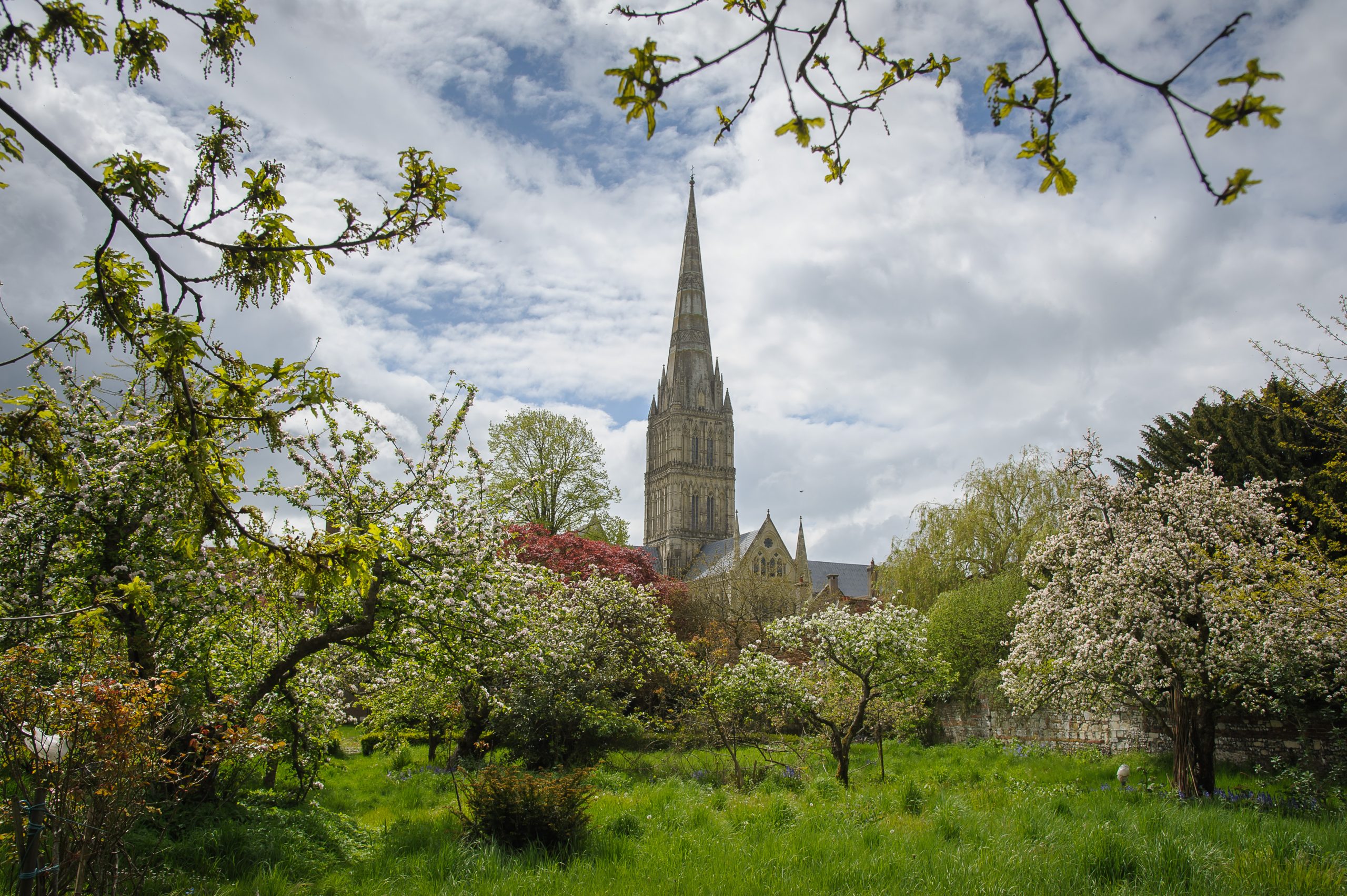12th December 2021
A Question of Trust

Sermon preached by Canon Robert Titley, Treasurer
Sunday 12 December 2021, The Third Sunday of Advent
Reading Luke 1: 57–66
Please scroll to the bottom of this page to follow a video of this sermon.
John Lennon, died 41 years ago last week. Asked in a 1966 interview about the stature of the Beatles, he said, ‘More popular than Jesus’. Two years earlier, you might conceivably have said that some other young musicians were more popular than the Beatles, when in April 1964, the Fab Four were knocked off the top of the charts by – The Dave Clarke Five.
It was a moment of real possibility. Soon, though, there would be no doubt whom history would consider the greater. Nowadays, everyone knows the Beatles, whereas even older listeners may struggle to name more than one song by north London’s answer to the Mersey beat.
Today we remember another John, the Baptist, marked by the third candle in the Advent wreath. John has fared better in the Christian memory than have the DC5, perhaps, in the popular memory of pop. And there was a moment someone might have called him more popular than Jesus. (Not that popularity is quite the word; it was rather about who had the greater authority from God.)
Take the first chapter of Luke’s gospel. These eighty verses that set the scene for the whole book are more about John than Jesus. Why so much about the warm-up act? When Luke was writing his gospel, perhaps the Baptist still had fans (again, not the right word), people for whom John, though he was now dead, was still the main man. And if that’s how it was, it was important to spell out that he wasn’t. Luke does not do this by belittling the Baptist, however. Quite the opposite. He shows John matching Jesus stride for stride.
The coming birth of each is announced by an angel, and each will be born in the unlikeliest of circumstances: John’s parents, Elizabeth and Zechariah, are elderly, and Zechariah is literally dumbstruck by the idea. Jesus’ mother-to-be Mary takes to song in the Magnificat (which the choir sang earlier) and so does Zechariah: his song, the Benedictus, comes straight after our reading ends. As Luke’s story unfolds, each gathers followers – in John’s case, hordes flock to the river Jordan for his baptism; each confronts the powers that hold sway in their country; and each is killed, each laid in a tomb. And only then, after what happens next, only after Easter, will there be no doubt that John is the forerunner of someone who is greater than he is, and that Jesus is the one in whom to put your final trust.
Trust – the word of the moment. It’s everywhere, every medium, every platform, as in this headline on the website of a government-supporting paper on Thursday: ‘PM torpedoes public trust’. You will have your opinions about Christmas parties, and how long Plan B will survive contact with the enemy, but the underlying question of trust is a vital one for Advent, as its scriptures of the season direct our eyes to the end of things, the depth of things. In the end, who do I trust? Who do I take seriously without reservation, and allow real sway in my life?
Sometimes you trust people and they let you down – it can happen in public or in personal life – and here we can be helped by the Christian understanding of humanity as glorious yet flawed (‘original sin’ is the shorthand). If you are let down, however distressed or angry this makes you, it should not come as a total surprise; and that realism can save us from the sin of thoroughgoing cynicism.
Sometimes, though, you commit yourself to a person or a cause, and it’s not that they let you down, but that you place on them a greater burden of trust than they can bear. That would have been the painful discovery for those who had given their all to John the Baptist. It’s the discovery you make in any movement for change in our world. We must strive, and urge others to strive, for great things as we grapple with the pandemic and climate breakdown, but we should not expect the entirety of the new Jerusalem.
And it’s the discovery church people make (or fail to make) when there’s a change of vicar, or service, or a change in any of the personnel and apparatus of religion. Beware investing ultimate trust in things or people that (however good they ware) are not themselves ultimate. Only God is that. Falling into that trap (as Revd Pete explored in last Sunday morning’s sermon) is to risk a refined sort of idolatry.
It was well put by a parishioner twenty-odd years ago when our south London church burnt down. As we surveyed the charred timber and blackened bricks, she said, ‘I’ve sometimes asked myself, what it is that draws me here? Is it God? Or is it the building? Now I shall find out.’




